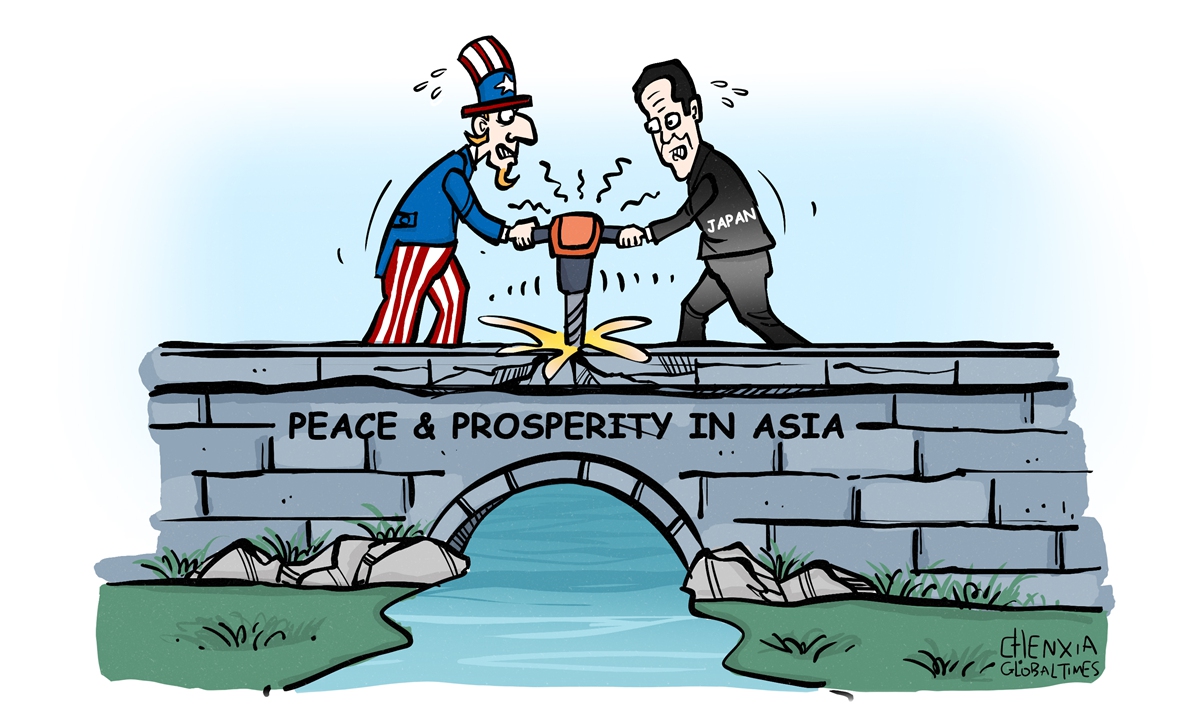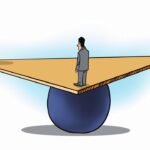In the geopolitical chess game in East Asia, the US-Japan alliance has been the focus of attention. Recently, US Secretary of Defense Lloyd Austin embarked on his seventh visit to the Indo-Pacific region since taking office. On Thursday, he visited Japan and met with Japanese Foreign Minister Yoshimasa Hayashi and Japanese Defense Minister Yasukazu Hamada.
The US and Japan are working to modernize their military alliance in the face of threats from China, North Korea, and Russia, said Austin in Tokyo. The two countries’ defense ministers also agreed to strengthen extended deterrence for Japan, including US nuclear weapons.
US-Japan military cooperation was pushed further by Austin’s visit to Japan, and both countries have their own considerations for such cooperation.
Firstly, for the US, the priority is to reduce the cost of maintaining hegemony. The US has targeted China as its top strategic competitor and subsequently introduced the “Asia-Pacific Rebalancing Strategy” and “Indo-Pacific Strategy” to contain China. However, it is unlikely that encircling a giant industrial nation like China will succeed. It will also consume massive resources, exacerbating the structural contradiction between the declining relative power of the US and the increasing cost of maintaining hegemony.
In this context, US-Japan cooperation can partially alleviate the US’ cost of maintaining hegemony.
Secondly, Washington aims to enhance its control over Japan. There has been no relaxation in the US’ control of Japan, as evidenced by the subtle restrictions on Japan’s development of next-generation fighter jets. The US and Japan agreed to strengthen cooperation in intelligence and reconnaissance, but the core technology and equipment will certainly come from the US, and the use of information and data will be dominated by the US military rather than the Japanese Self-Defense Forces. Through these means, Washington can strengthen its control over Japan’s military forces.
Finally, increased bilateral military cooperation will increase Japan’s purchases of US weapons, meaning more orders for the US military-industrial complex. In addition, Austin’s visit to Japan cannot rule out the intention of further creating tension in East Asia and thus attracting capital to flee to the US to ease its financial crisis.
As for Japan, it also has its calculations. Japan has maritime rights and territorial disputes with Russia, South Korea and China. After provoking the dispute with China over the Diaoyu Islands, Japan didn’t gain benefits but lost the actual control of the islands. By strengthening cooperation with the US, Japan intends to confirm its anti-China value and hedge against China’s military superiority.
Japan has become the most active force assisting the US in containing and suppressing China under the framework of the US’ Indo-Pacific Strategy. However, the military cooperation promoted by Austin’s Japan trip will have a series of severe consequences. While accusing China and Russia of growing military cooperation, the US is strengthening cooperation with South Korea and Australia besides Japan. And this cooperation is likely to make the confrontation in which the US gathers allies to carry out maritime containment policies against China and Russia the theme of the world’s oceans. This undoubtedly severs the unity and integrity of the ocean and risks replacing cooperation with confrontation at sea, posing a threat to the interests of all peoples worldwide.
Moreover, it worsens the regional situation. Disregarding the fact that the US is the permanent member of the United Nations that has waged the most wars, Austin named China and North Korea. He also took practical measures to sow the seeds of discord in East Asia, which will likely trigger countermeasures by the countries concerned and thus intensify the regional situation.
It is thus clear that Austin’s trip to Asia will by no means bring peace and prosperity. Yet, threatening to use force and containing others cannot alleviate and eliminate the US’ own crisis. What can solve the country’s problems is precisely the globalization that the US policymakers have seriously undermined. The crisis of the US deepens, as Washington destroys the freedom from fear of the people of East Asia. This is a tragedy for the US.
The author is deputy director of the Center for Northeast Asian Studies, Shanghai University of Political Science and Law. opinion@globaltimes.com.cn













